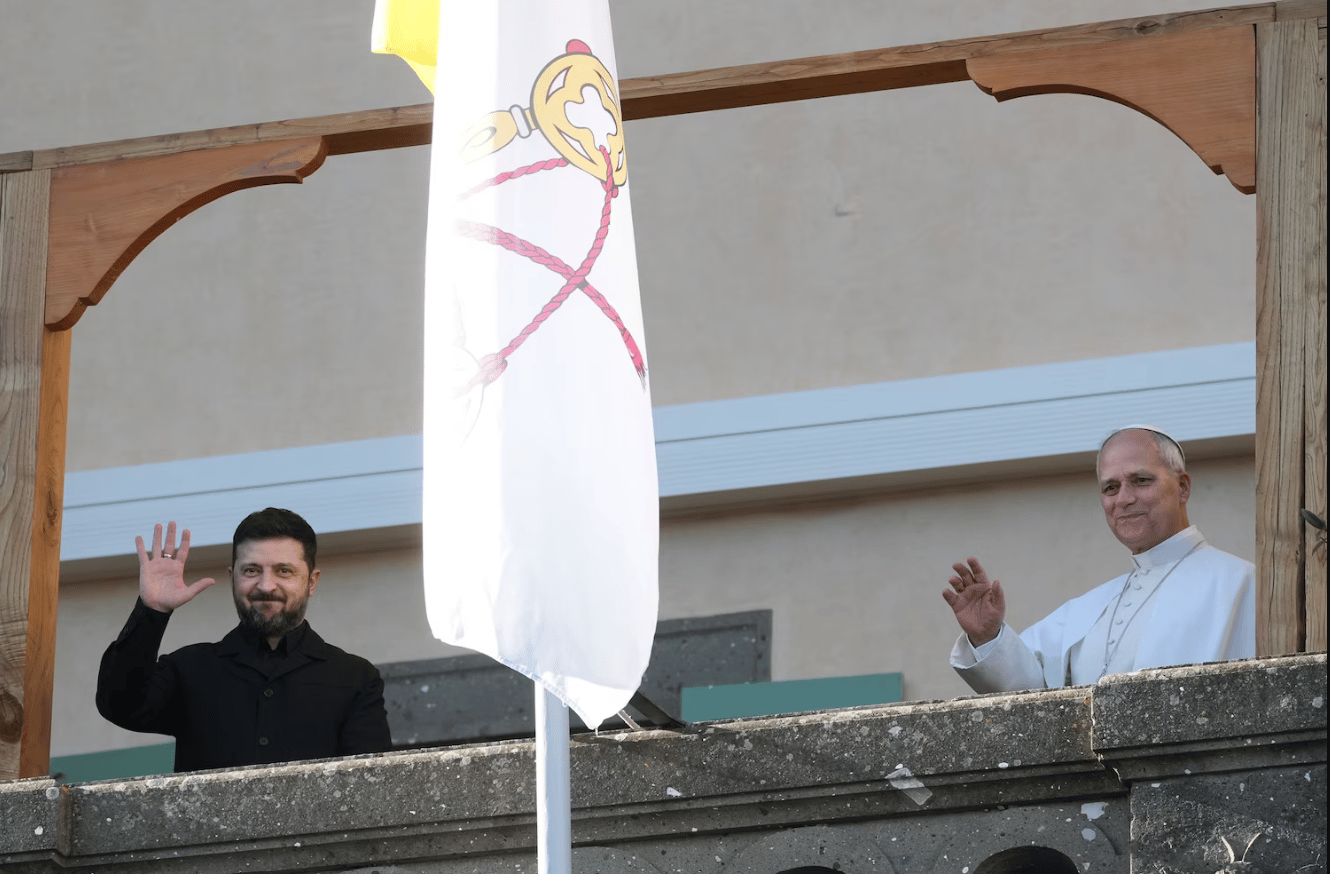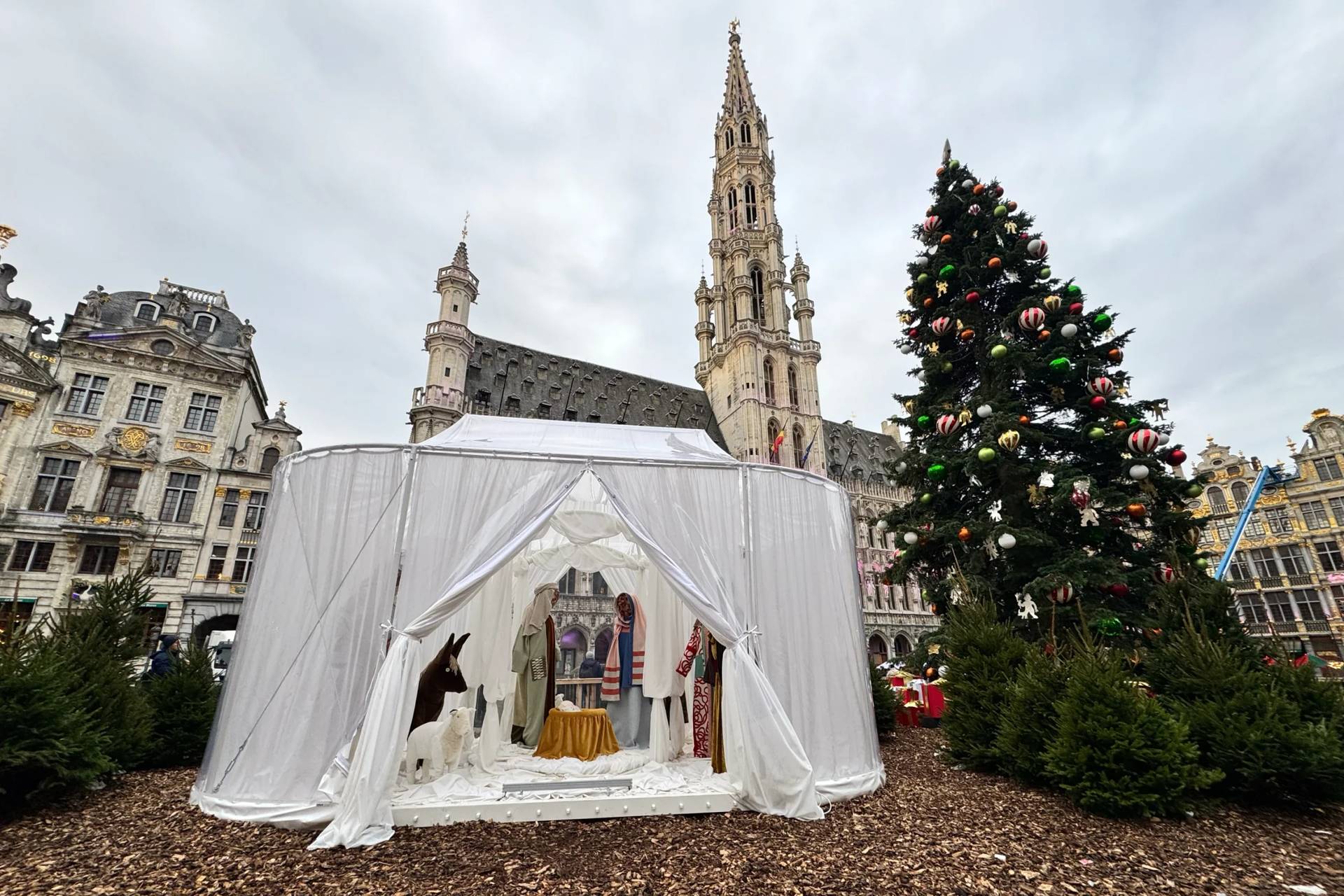RIGA, Latvia – The music of the Gospel must be heard even in challenging times, Pope Francis said Monday in Riga, Latvia, drawing from the country’s rich musical history that has been a source of cohesion and unity for its multiple faiths and ethnicities.
“Our faith is not to be hidden away, but to be made known and to resound in the various sectors of society, so that all can contemplate its beauty and be illumined by its light,” the pope said during an ecumenical prayer at the Lutheran Riga Doms, the largest medieval Cathedral in the Baltic States.
Francis is visiting Lithuania, Latvia and Estonia Sep. 22-25 in a pastoral visit occurring on the centenary of their independence.
The pope praised the “lived ecumenism” in the country while meeting the Lutheran Archbishop Jānis Vanags and ten other representatives of Christian denominations in the country.
“For over eight hundred years, this cathedral has been home to the Christian life of this city, a faithful witness to all those brothers and sisters of ours who have come here to worship and pray, to sustain their hope in moments of trial and to find the courage to face times of great injustice and suffering,” he said.
Latvian towns offer glimpses of the peaceful coexistence of different faiths and beliefs in the country, with Catholic, Protestant, Jewish, Russian Orthodox and pagan places of worship lined close to one another.
The pope called the Latvian people to “weave bonds of communion” and become “weavers of unity,” in a country known for its intricate woven geometric patterns usually showcased on the three-meter long sashes in women’s folk dresses.
Behind Francis as he spoke, was one Europe’s largest organs built in 1883 and preserved in the cathedral, which is one of the symbols of Riga and a popular tourist attraction. Using the organ as an example, the pope warned of the danger of “feeling like ‘resident’ Christians and become tourists.”
“We could even say that our whole Christian tradition can run the same risk,” he added. “The risk of ending up as a museum piece, enclosed within the walls of our churches, and no longer giving out a tune capable of moving the hearts and inspiring the lives of those who hear it.”
Music strikes a tone with the Latvian people and inhabitants of the Baltic States in general. The Dainas, Latvian folksongs, represent the largest collection of versified traditional heritage in the world and amount to over 1.2 million four-to-six-line verses.
Every five years, Riga hosts the Latvian Song and Dance Celebration, where 20,000 singers and 15,000 dancers convene to cherish and share traditional music. The voices of an all-female choir and the tunes of the historic organ also welcomed the pope to the cathedral.
“If the music of the Gospel is no longer heard, we will lose the sounds that guide our lives to heaven and become locked into one of the worst ills of our day: loneliness and isolation,” Francis said. “That illness takes hold in those who have no relationships; it can be seen in elderly persons abandoned to their fate, but also in young people lacking points of reference or opportunities for the future.”
Latvia, like its neighboring countries, continues to suffer a diaspora of its people especially its youth, which seeks better opportunities for work in other countries in Europe. According to official estimates, over 370,000 Latvians, about 15 percent of the country’s population, lives in other parts of Europe, Australia and the United States.
“Unity is something that our mission today continues to demand of us. This mission requires us to stop looking at past injuries and self-referential approaches in order to focus on the Master’s prayer. Our mission is to ensure that the music of the Gospel continues to be heard in our public squares,” the pope said.
Unlike Lithuania, which Pope Francis visited during the weekend, Latvia’s Catholics represent a minority – just over 25 percent of the population – in the largely Lutheran country.
Secularism is rampant in the country and a study published by the Pew Research Center shows that Latvia is one of the least religious places in the world. Paganism tied to the ancient traditions of the land has also been experiencing a Renaissance.
“Some may well say that the times in which we live are complex and difficult,” Francis said. “Others may think that in our societies Christians have less and less margins of action or influence for any number of reasons, such as secularism or individualism.”
The pope added that this might lead to a “closed and defensive mentality,” while acknowledging that today many Christians continue to be subjected to persecution and martyrdom due to their faith. Francis offered words of encouragement.
“If Christ deemed us worthy to live in these times, at this hour – the only hour we have – we cannot let ourselves be overcome by fear, nor allow this time to pass without living it fully with joyful fidelity,” he said.
“The Lord will give us the strength to make every age, every moment, every situation, an opportunity for communion and reconciliation with the Father and with our brothers and sisters, especially those nowadays considered inferior, worthy of being discarded.”
“May the music of the Gospel continue to resound in our midst,” the pope concluded. “May its music never cease to inspire our hearts to dream and our eyes to contemplate the life that the Lord calls us, all of us, to live to the full. And to be his disciples in the midst of the world in which we are called to live.”















